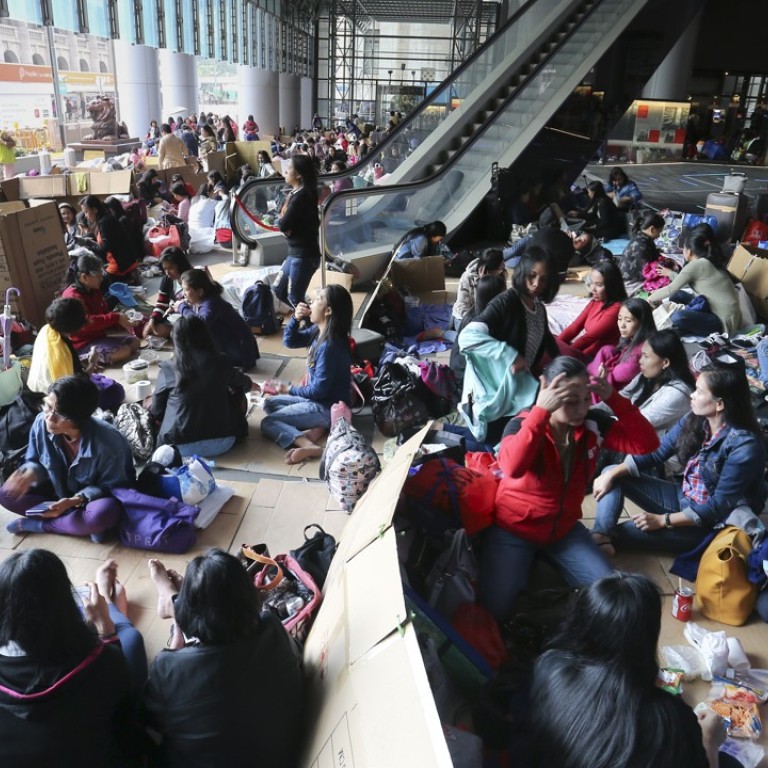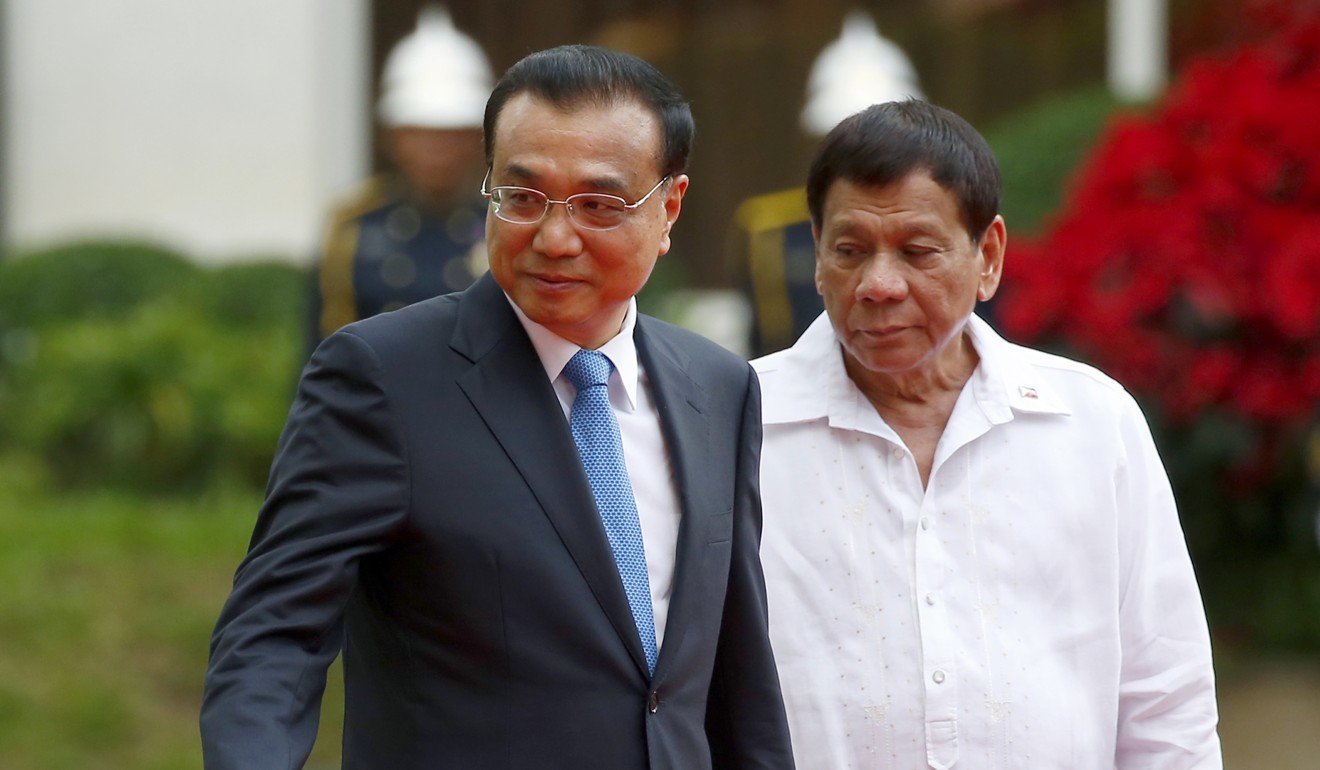
Exclusive | Do they speak English in the Philippines? The key question that could scupper plans to import workers into China
Chinese rules that brand Filipinos as non-native English speakers threaten to undermine talks on relaxing restrictions on working on the mainland
Talks between China and the Philippines over whether more Filipinos will be allowed to seek employment in the mainland have been hindered by a row about whether such workers can be classified as native English speakers, according to a source familiar with the discussion.
The two nations signed 14 infrastructure and economic cooperation agreements on Wednesday as Premier Li Keqiang wrapped up his visit to Manila.
But there was little progress on the possibility of China opening its doors to Filipino workers.
The two countries have been discussing a visa regime that would allow Filipinos to work in major mainland cities.
“[The Philippines] wanted to send more English teachers instead of semi-skilled domestic workers. We are still discussing the matter,” said the source.
The Philippines wants to prioritise the teachers because they would enjoy higher social status and also because they are deemed as skilled workers and will receive higher salaries.
But the Chinese government does not consider Filipinos as native English speakers, the source added.
Tagalog is the first language of the Philippines, although English is widely used as an official language and is the primary medium of instruction in some schools.
However, rules from the State Administration of Foreign Experts Affairs released in September state that foreigners from non-native English speaking countries can no longer teach English in China at any level unless they have a bachelor's degree or above from an English-speaking country plus two years’ work experience in English language education.
Mainland China has seen an increasing demand for both English teachers and Filipino domestic workers.

An estimated 200,000 Filipino domestic workers worked illegally on the mainland last year due to China’s strict work visa policy, the Philippines’ labour secretary Silvestre Bello said in August.
Without work permits, most Filipino domestic helpers enter the mainland on tourist visas that allow them to stay for up to 14 days. Overstayers face fines of between 5,000 and 20,000 yuan (US$750 to US$3,000) on leaving the country.
In Shanghai, where foreigners are allowed to recruit domestic workers from overseas, a Filipino domestic helper usually earns 7,000 to 8,000 yuan a month – almost double the minimum salary for a helper in Hong Kong, which does provide visas for domestic helpers.
Dominador Say, undersecretary for employment and policy support at the Philippines department of labour and employment, said in August that a representative from the Chinese embassy in Manila had visited the department last month to discuss a preliminary plan, adding that China was considering hiring 100,000 household service workers a month.
But the source said China was concerned that hiring Filipino domestic workers might trigger controversy and resentment among local workers who fear it will drive down wages, even though the demand for such workers is increasing.
Even though the two nations made little progress in this area, the two countries signed a number of other agreements.
These included a deal to build two bridges in Manila, two new drug rehabilitation centres in Davao and agreed to a yuan bond issuance worth US$200 million.
Ties between China and the Philippines had previously been tense because of their conflicting claims to the South China Sea.
The Philippines under the previous president Benigno Aquino took the dispute to an international tribunal at the Hague, triggering a furious response from Beijing when it ruled in favour of Manila.
But current President Rodrigo Duterte has promised to put aside the two countries’ territorial disputes and sought warmer relations with Beijing in exchange for Chinese investments while moving away from the United States.
Manila recently backed down from plans to carry out construction work on a shelter for Philippine fishermen in a disputed area of the South China Sea after a protest in August from Beijing.
A joint statement released by the two nations following Li’s visit said the South China Sea dispute was not the only aspect to Sino-Philippines relations. The two sides are willing to discuss cooperation over oil exploration in the disputed waters.
It said China would continue supporting the Philippines in its fight against terrorism after the recent battle to recapture the city of Marawi from Islamist extremists.

